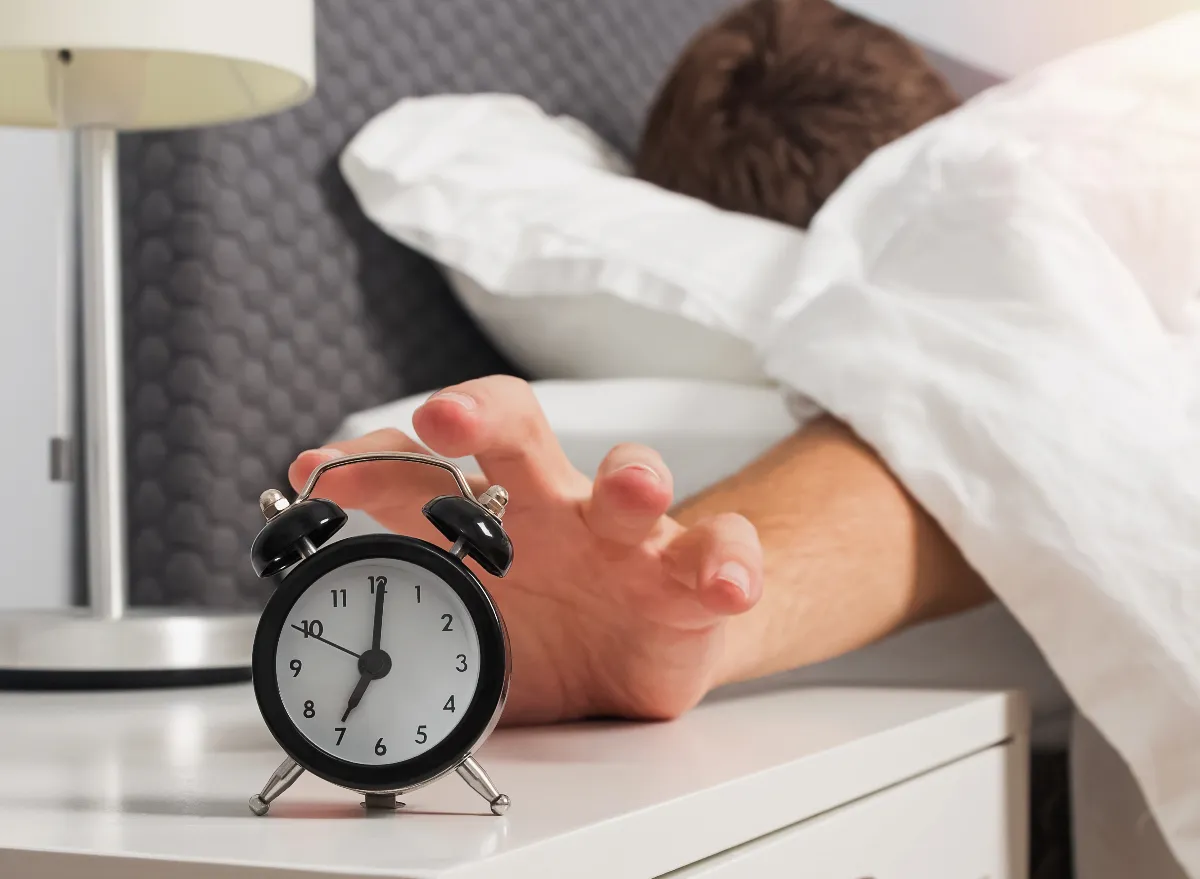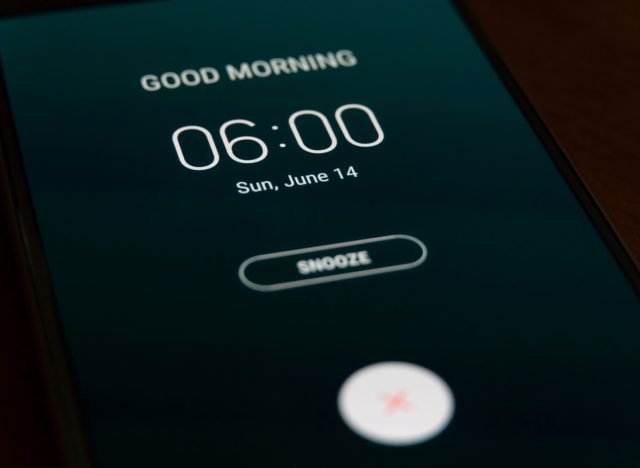Hitting the Snooze Button Can Actually Help You Wake Up, New Study Reveals

We’ve all been there—you know, feeling ultra-cozy in bed as snug as a bug in dreamland. And then it happens: You hear the annoying sound of your alarm off in the distance, and it feels as though your head just hit the pillow. Ugh. You’re totally not ready to part with your oasis of comfort quite yet, but quickly remember responsibilities are calling. Before you disrupt your slumber, though, we have some exciting news to share. If you lean over and hit the snooze button, it may actually help you wake up, new research published in the Journal of Sleep Research reveals. You heard that right! So snooze for a bit longer, and when you wake up, continue reading about how snoozing the alarm can benefit you.
The study:

The first part of the research was a survey that questioned the sleeping habits of 1,732 individuals. The study found that hitting “snooze” is a very common occurrence. In fact, 69% of the participants admitted to hitting snooze or setting a few alarms; the “snoozers” were more likely to delay waking up on workdays. The average time participants spent in the “snooze” zone was 22 minutes. The individuals who hit snooze were found to be younger in age than “non-snoozers.” Feeling too sleepy to get out of bed was the most common reason noted for individuals hitting snooze.
Part two of the study involved observing 31 individuals over three nights to assess how their snoozing affected their ability to process information, how well they remembered things they were tested on, and how well they functioned. The researchers also took note of their disposition and cortisol levels when they woke up.
The participants went to sleep and woke up at the same time over the course of two conditions, but they differed in whether they could snooze the alarm or not. In the first condition, the participants slept through the night and then were woken up by their alarms at their wake time. In the second condition, they set a first alarm 30 minutes before when they were required to wake up and were told to “snooze” the alarm three times in 10-minute intervals.
The results:
Researchers found that snoozing your alarm doesn’t negatively impact performance on cognitive tests and it may actually make waking up easier and help you feel more alert in the a.m.!
The study found that when the 31 participants snoozed their alarms for 30 minutes, it either improved or had no impact on performance when they took cognitive tests as compared to when they were abruptly woken up.
Lead author of the study, Tina Sundelin, an associate professor in the department of psychology at Stockholm University in Sweden, revealed to NBC News, “Snoozing for 30 minutes in the morning does not make you more tired or more likely to wake up from deep sleep.”
Sundelin’s research also suggests that snoozing your alarm may help you wake up more easily! Participants did not report feeling sleepier when using the snooze button than those who woke up right at the first alarm; however, Sundelin says that the participants became alert more quickly.
“For those who usually snooze, it might even be helpful with waking […] When snoozing, as opposed to when having to wake up right away, I would say that they came to alertness quicker, even though there was no difference in how sleepy or alert they felt subjectively.”
So if you’re a regular snoozer, there’s no need to be ashamed! Continue hitting that snooze button with the confidence in knowing that it won’t make you any more groggy or at a cognitive disadvantage as those who are able to hop out of bed after just one alarm.









